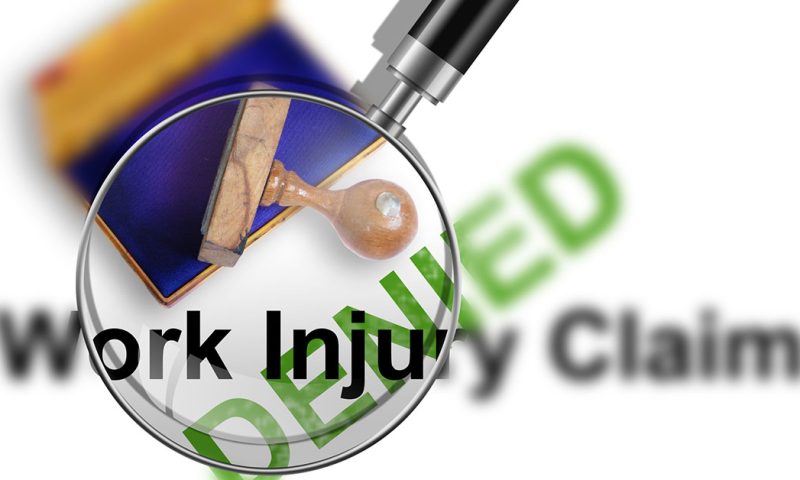Florida Workers’ Compensation insurance protects injured workers by replacing lost wages and paying medical benefits. This coverage is essential – a safety net for those who are hurt on the job. But some parties abuse the system. Fraud is an unfortunate reality. How can you avoid being a victim?
What is Workers’ Comp Fraud?
Workers’ compensation fraud is a third-degree felony in Florida. It can involve:
- Making false claims in order to deny workers’ compensation or avoid legal responsibility.
- Misrepresenting payroll.
- Misclassifying employees.
- Making false claims in order to receive workers’ compensation.
Fraud can be perpetrated by both employers and employees. When employers try to defraud their insurance carriers, it is known as “premium fraud.” When an employee attempts to receive benefits for a nonexistent injury or otherwise misrepresents the injury, it is known as “claimant fraud.”
While anyone within the workers’ comp system can commit fraud (e.g. doctors, insurance adjusters, etc.), we will focus on these two groups.
The Bureau of Workers’ Compensation Fraud
Some people think of fraud as a “victimless crime.” It is not. Workers’ comp fraud has a significant impact on Florida’s economy and its businesses (which must pay higher insurance premiums).
It is also potentially disastrous for workers who are legitimately injured at work and are wrongly denied benefits. Workers’ Comp fraud costs the United States tens of billions of dollars each year.
The Bureau of Workers’ Compensation Fraud is the agency that investigates suspected incidents and violations of Florida’s laws. If found guilty, parties face up to five years in prison, fines, and possible civil liability.
Learning About Employee or Claimant Fraud
The vast majority of employees are honest and only seek workers’ comp benefits when they are injured on or as a direct result of their job. But there’s always a bad apple here and there. They may try to receive compensation even if they are:
- Not injured on the job. Say an employee hurts her back when lifting heavy boxes at home. The injury has nothing to do with her employment, but she says she was hurt at work so she can collect benefits.
- Fake injuries. Muscle spasms, back pain, neck issues – these are “popular” scams because they are difficult to disprove.
- Exaggerating the injuries. Let’s say an injury did occur at work: an employee slipped on the ice. He may say he fell and hurt his neck. This way, he can take more time off work and receive more benefits.
- Passing off an old injury. Some employees try to claim an old injury (e.g. a bad shoulder) is the result of a new incident on the job.
- Healed and well enough for work. Those who want to milk the system a bit longer engage in “malingering.” They claim they are still not able to work.
What can you do as an employer? After all, these dishonest employees can be a significant drain on your time and resources. Consult a Workers Comp lawyer immediately. We can help you protect your business, and your name, against fraudulent claims.
Some steps you can take to help prevent fraud include:
- Carefully screening job applicants. Look for red flags like frequent job changes and a history of suspicious injury claims.
- Keep in contact with injured employers. This can help prevent malingering and let them know they are valued.
- Get them back to work. Modified duty can help defray costs by getting people back to work sooner.
- Educate your employees on the purpose of Workers’ Comp and the consequences of fraud. Research suggests that this helps reduce the incidence of fraud.
- Set up clear, streamlined policies and procedures around reporting injuries.
When Injured Employees Are Denied Benefits
Premium fraud is much more costly than claimant fraud. That’s just the financial side of it. For employees, being denied benefits or reduced compensation creates real hardship. Some employers find creative ways to cheat their people out of Workers’ Comp. Some examples:
- Misclassifying employees. A business owner may classify an employee as an “independent contractor” or “subcontractor” to avoid providing Workers’ Compensation coverage.
- Misclassifying jobs. To reduce their premiums, a business may claim that jobs are safer than they really are. A crane operator, for instance, may be classified as a customer service rep or file clerk.
- Hiding employees. Some companies try to reduce their premiums by creating “dummy” companies and claiming employees are independent contractors of that shell corporation.
- Fudging payroll. Reduce payroll, reduce premiums. In one Florida Workers’ Compensation fraud case, an employer claimed $12,000 in payroll – neglecting to report the other $333,905 he actually paid out. He bilked the insurance company out of $43,000 in premiums.
- Denying claims. Employers may try to say that workers are faking injuries, that they didn’t occur on the job, that they were not severe enough to require medical attention, etc.
What do you do if your claim has been denied? Don’t panic; you have options. Contact a Workers Comp lawyer immediately. The LaBovick Law Group can review your situation and help you take the necessary next steps.
If you feel that your claim was denied or compensation reduced as a result of fraud, it is even more important to have an expert working on your behalf.
Suspect Workers’ Comp Fraud?
You can report suspected Florida Workers’ Compensation fraud by:
- Calling the Department of Financial Services (DFS) hotline at 1-800-378-0445.
- Using the Report Insurance Fraud Link. (Be sure to select “Workers Compensation” in the drop-down menu of options.)
- By going to a local field office.
For example, if you think your employer is misclassifying you as an independent contractor, you can report this activity to DFS. This can help ensure you and other employees are protected if anything happens on the job.
Please do not hesitate to contact our legal team; we work tirelessly to protect your rights and ensure you receive the compensation you are owed.
